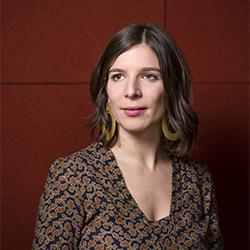Before joining the Institute, Dr Rusterholz was a Wellcome Trust Research Fellow at the Faculty of History, Cambridge University. She was also a Swiss National Science Foundation (SNSF) Postdoctoral Fellow at Birkbeck College and Cambridge. Her research focuses on the transnational history of sexual and reproductive health, population and family in the twentieth century. Her first book, Deux enfants c'est déjà pas mal, famille et fécondité en Suisse, explores why Swiss parents limited the size of their families in the 1960s. Her second monograph Women’s Medicine, Sex, Family Planning and British Female Doctors in Transnational Perspective (1920-70) (Manchester University Press, December 2020) traces the key roles played by British women doctors in the production and circulation of contraceptive knowledge from a transnational perspective. Her third manuscript under contract with Oxford University Press is a socio-cultural history of young people’s sexuality in Britain from the 1960s to the 1990s, using the Brook Advisory Centre (Brook) as a case study.
Her new research project RE:SHARE. Race and Ethnicity: Sexual Health and Reproductive Experiences in postwar Britain, which was awarded and Eccellenza fellowship and a European Research Council (ERC) starting grant (declined), explores the racialisation of sexual and reproductive health (SRH) charities and the ways that minoritised communities advocated for their SRH needs.


